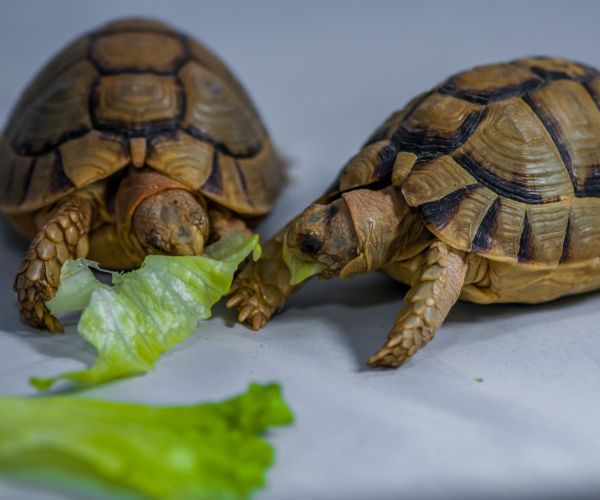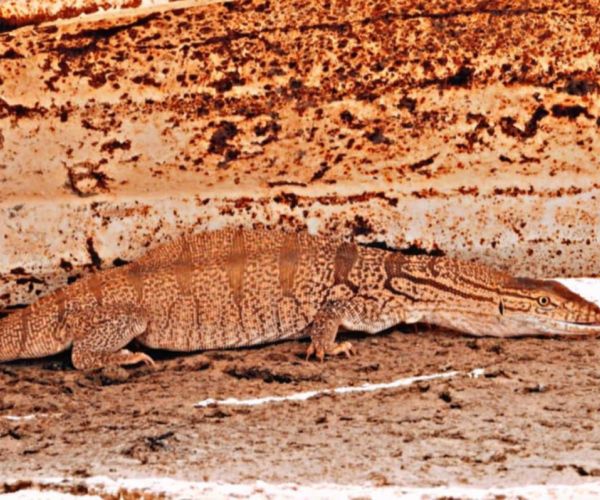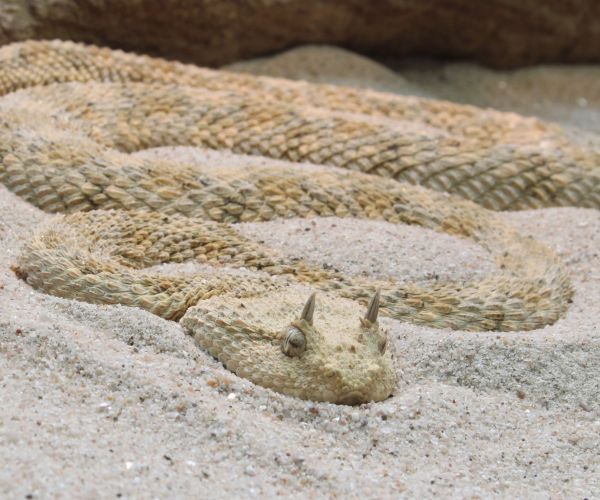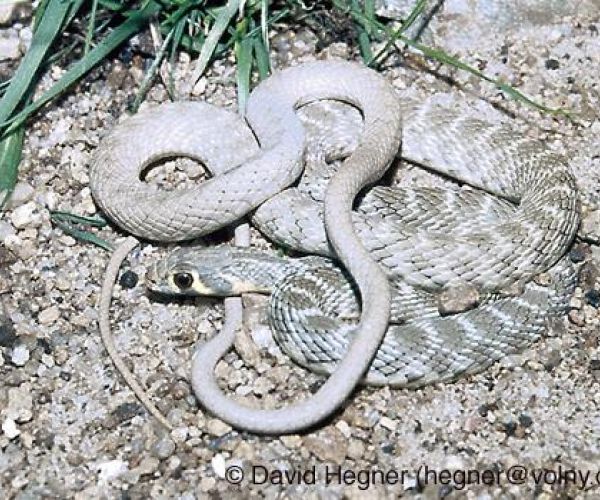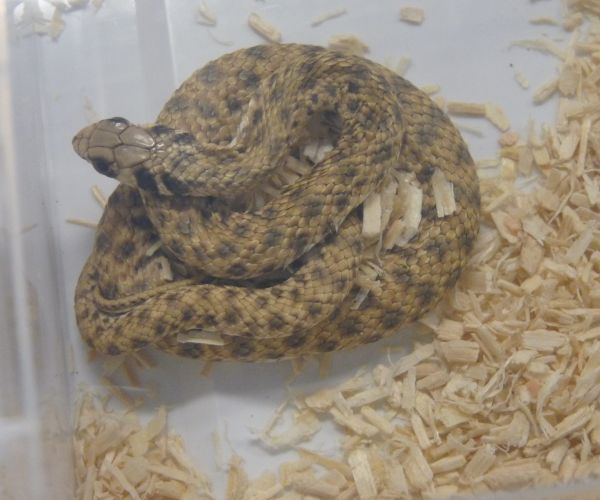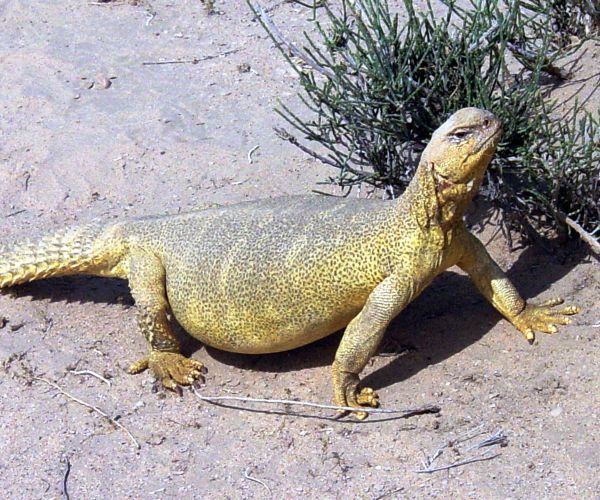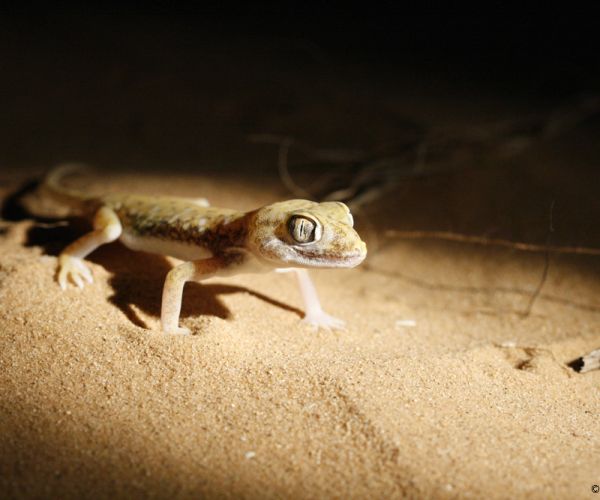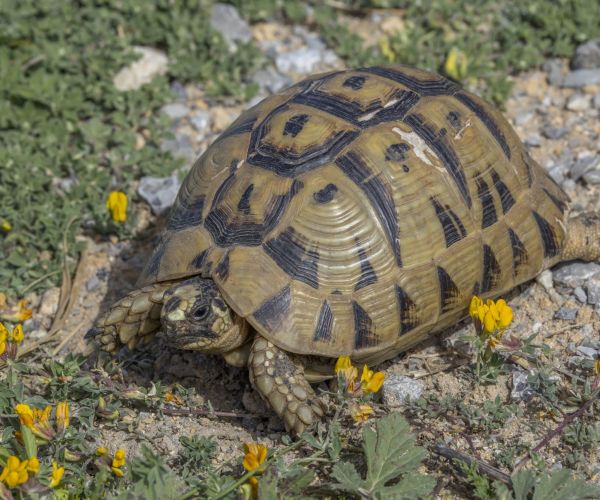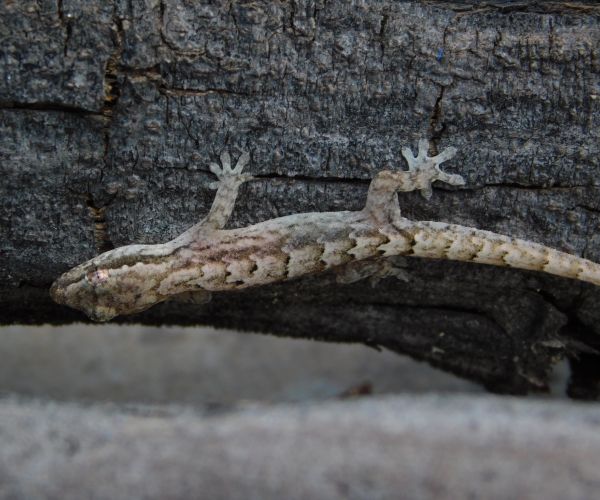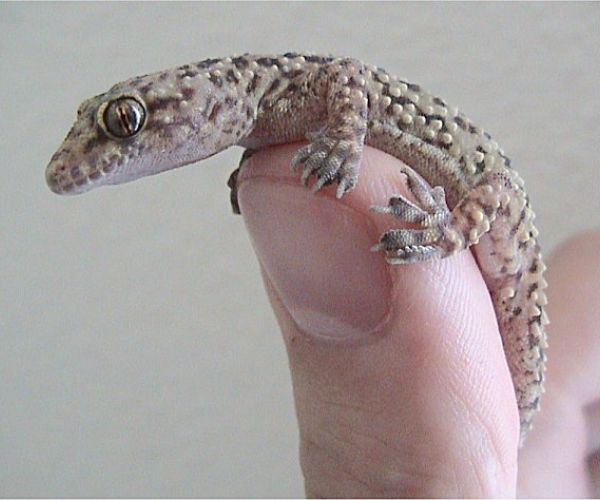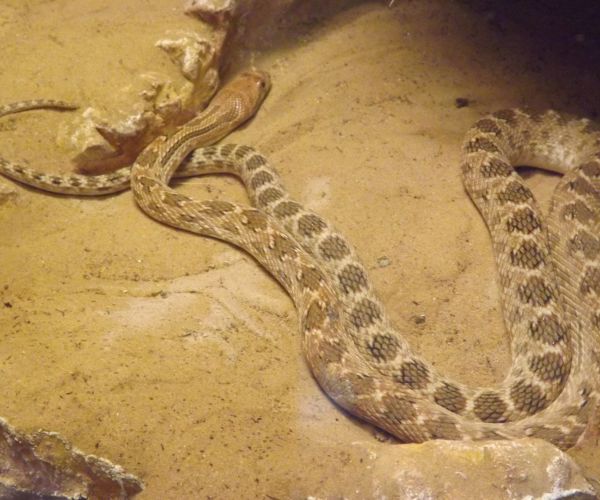Reptiles in Libya
In Libya, 113 different species of reptiles have been recorded, belonging to 14 families. Among them, 4 species are listed as endangered. Reptiles play an important role in the ecosystem and hold significant importance for various reasons, including:
Regulation of Other Living Organisms
Reptiles feed on insects, rodents, small mammals, and even other reptiles, helping regulate the populations of these organisms and preventing pest outbreaks.
Control of Agricultural Pests
Some reptiles prey on agricultural pests such as locusts, mice, and other harmful insects, contributing to the preservation of crops.
Unique Vertebrate Role in the Natural Environment
Reptiles form an essential part of biodiversity, enriching the natural environment and enhancing ecological balance.
Scientific Research
Reptiles are an important subject for scientific studies and research, providing deeper insights into ecological processes and biological evolution.
Heritage and Culture
Reptiles are part of the environmental and cultural heritage in Libya and worldwide, often associated with local stories, myths, and traditions.
Additionally, reptiles serve as a source of food and medicine in some cultures, with their skin and meat occasionally used in traditional medicine and handicrafts. Thus, reptiles hold significant importance in the environment, culture, and economy in Libya and worldwide.
